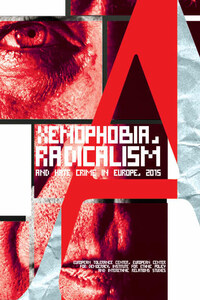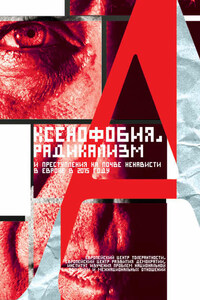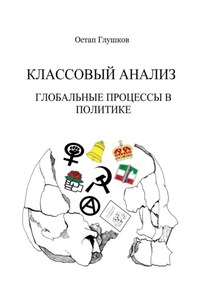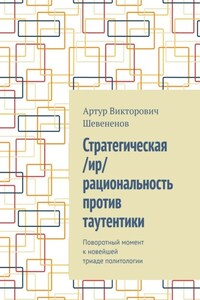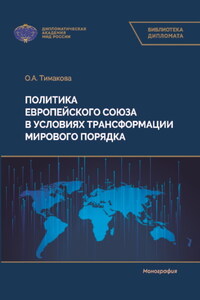European Centre for Tolerance
European Centre for Democracy Development
Institute for National Policy and Ethnic Relations Studie
Šamir Biedrība
Athens-London-Berlin-Paris-Moscow-Roma-Krakow-Budapest-Kiev-Amsterdam
2016
Editor in Chief and Project Head:
Dr. Valery Engel, Chairman of the Expert Council of the European Centre for Tolerance
Authors:
Dr. Valery Engel (general analytics), Dr. Anna Castriota (Italy), Dr. Ildikó Barna (Hungary), Bulcsu Hunyadi (Hungary), Dr. Vanja Ljujic (Germany, Netherlands), Tika Pranvera (Greece), Katarzyna du Val (Poland), Dr. Semen Charny (Russia), SOÓS Eszter Petronella (France), Ruslan Bortnik (Ukraine), Dr. Jana Salmina (Ukraine), Alex Carter (UK)
2015 was a year characterised by an unprecedented migrant crisis, escalated terrorist activity, and increased influence of radical political parties. Growing xenophobic tensions were accompanied by the rise of populist parties on the one hand and the radicalisation of Muslim youths on the other, which played a significant role in the attitude and treatment of refugees and immigrants this year. These trends have been observed against the background of anti-Semitic and Islamophobic sentiments, which have already been high for several years, as well as institutionalised racism in public and law enforcement bodies. Given these observations, it can be said that the European society is not only in the midst of racial and religious stratification, but also faces serious changes related to the transformation of identity and the growing civilizational conflicts.
The conducted study aimed to analyse the most prominent manifestations of hate in European countries in 2015 and to identify factors that affect the demand for radicalism in society. The study also focused on the preparedness and responses of governments to modern challenges. Research was conducted in 8 EU member states (France, Germany, Greece, Hungary, Italy, the Netherlands, Poland, and the United Kingdom), as well as Russia and Ukraine, as countries who play a significant role in political and economic processes in Europe.
The study involved researchers from various universities and research centres across Europe: Department of History at Northampton University, UK; Teesside University, Centre for Fascist, Anti-Fascist and Post-Fascist Studies, UK; Department Chair of Social Research Methodology at Eötvös Loránd University (ELTE), Faculty of Social Science; Political Capital Institute in Budapest; Pantheon University of Athens; Netherlands Institute for the Study of Crime and Law Enforcement; Jagiellonian University, Dept. of History, Krakow; Russian Institute of the National Policy and Inter-Ethnic Relations Studies, Moscow; Ukrainian Institute of the Political Analysis and Management; Human Rights Centre “Religion and the Law”, Kiev.
Analysis was conducted in the following areas: legislation affecting minorities, law enforcement practices, treatment of human rights activists, hate crime statistics, xenophobic sentiments in the population, and government responses to modern challenges, such as the refugee crisis and the threat of radical Islamism. These observations form a basis for recommendations, which outline the steps to improve the situation regarding minority rights and de-escalating public tensions.
This report has been produced with the support of the European Centre of Tolerance.
1.1. Discriminatory trends in european legislation
One of the most significant elements contributing to discriminatory trends in European legislation is the non-recognition of racial or religious hatred as an aggravating circumstance in a crime. Of the countries under review in 2015, four had lacked such a provision – France, Greece, Hungary, and Poland. Until recently, the German legal system had a similar deficit, where Article 46 of the Criminal Code left it to the discretion of the court.[1] However, on March 19, 2015, the Criminal Code had been updated to include Art. 46.2., according to which “hate motives” are to be considered during sentencing.[2] In Ukraine, criminal responsibility for a hate crime is linked to “direct intent”, which must be proved. In Italy, hate views only affect sentencing if the crime was committed with the aim of influencing the broader public in order to “change its behaviour”, which is also difficult to prove in court.[3]
A no less important discriminatory element in European legislation is the unequal legal treatment of specific religions. For example, Greek legislation allows for discrimination of non-traditional religions with Article 13(2) of the Constitution, which states that “all known religions shall be free and their rites of worship shall be performed unhindered and under the protection of the law.” Paragraph 3 of the same article has the same qualifier, which deals with “insulting Christianity or any other known religion.”
It is worth noting that Greece legally recognises only three religious organisations: The Greek Orthodox Church, Thracian Muslims, and the Jewish community. Other organisations that consider themselves religious are excluded from this status and thus cannot own property as legal religious bodies.
